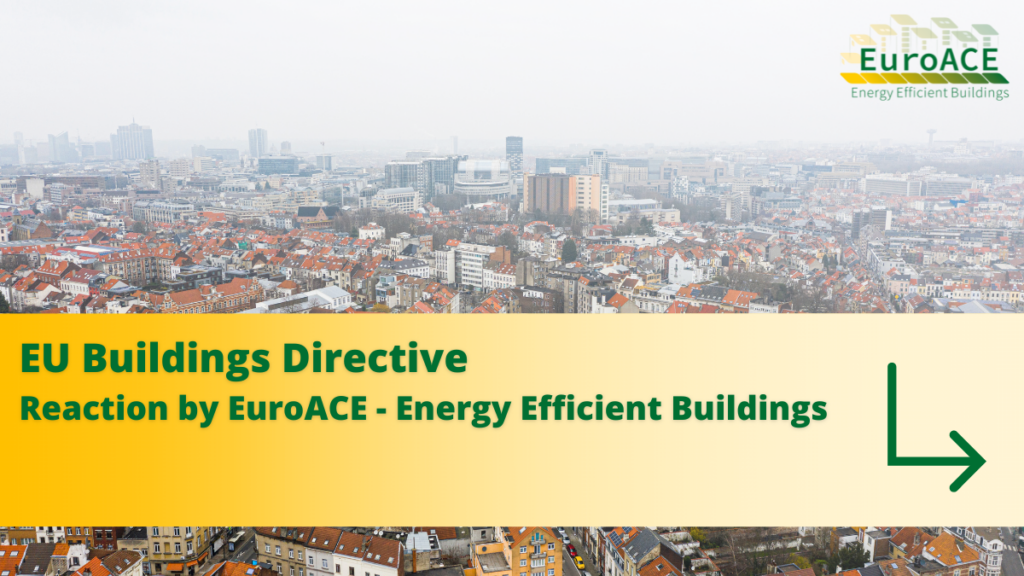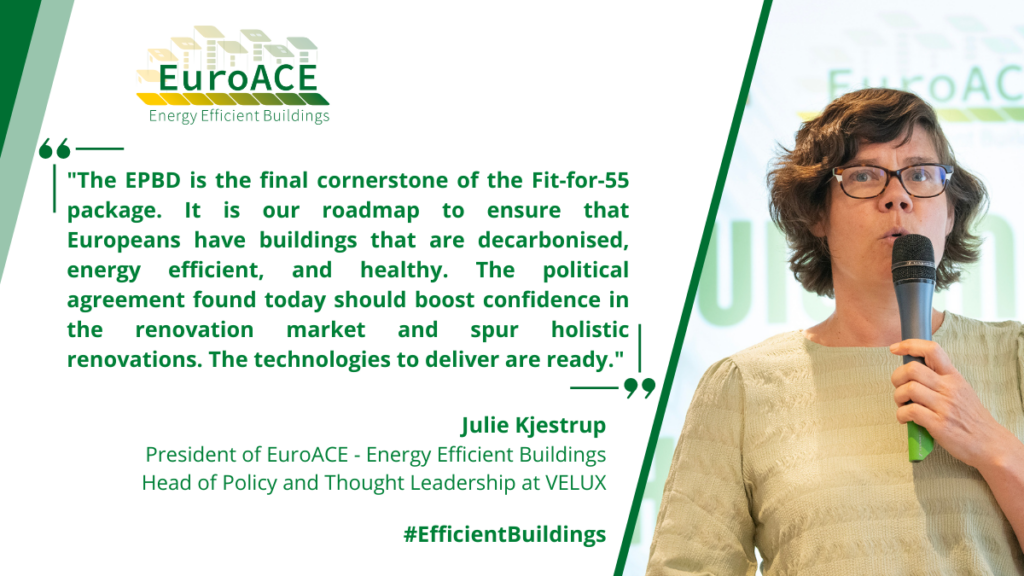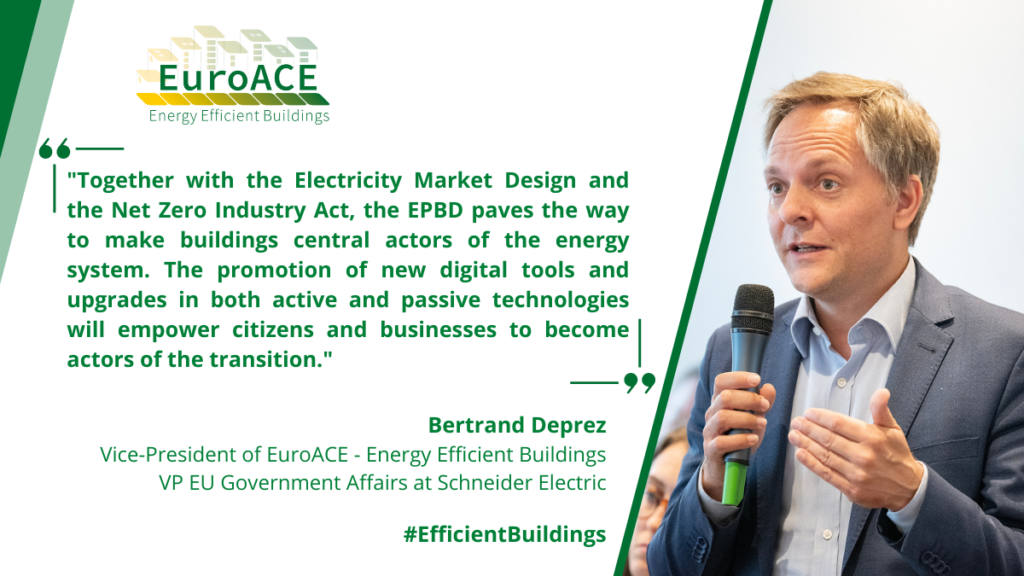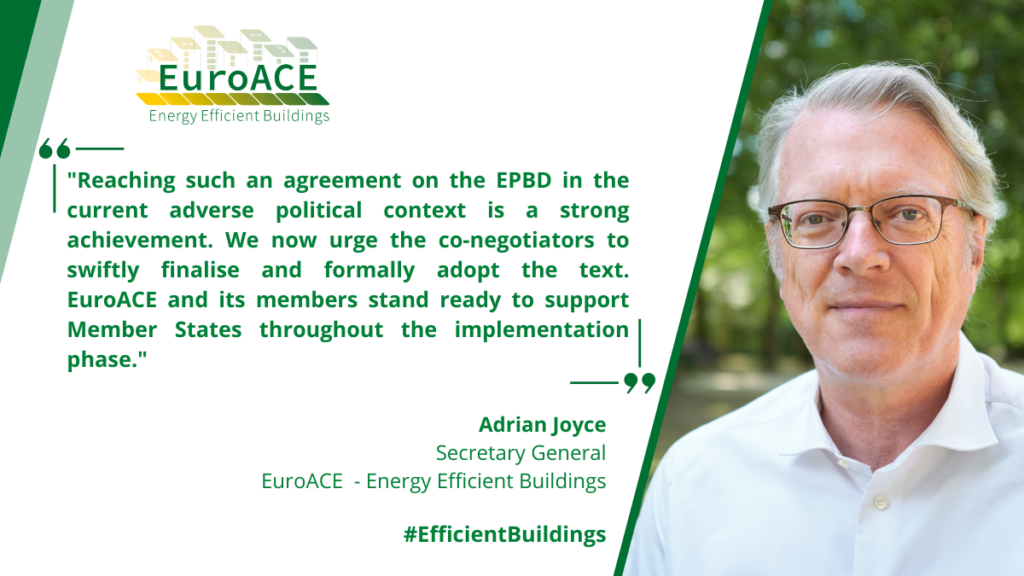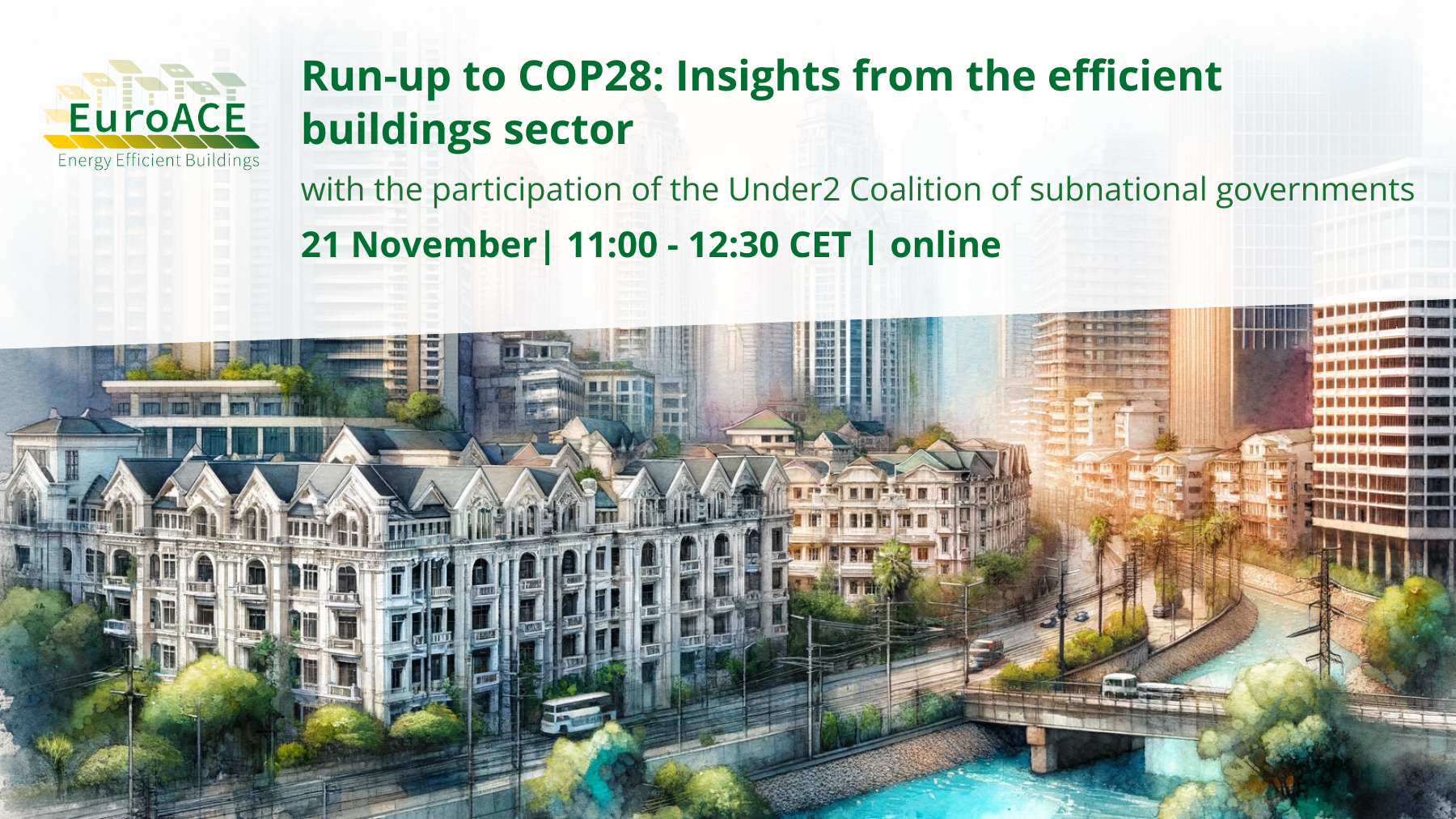Download the Press Release in pdf
The political agreement found on the Energy Performance of Buildings Directive (EPBD) is a positive signal for the efficient buildings industry in Europe. EuroACE now urges the European Parliament and the Council to finalise and formally adopt the text.
As 118 countries are calling for doubling the pace of efficiency improvements this decade, today’s agreement starts to put words into practice in the EU buildings sector. The European Union is finally making progress on structural measures to reduce its dependency on fossil fuels and durably shelter its citizens and businesses from energy price hikes while also improving living conditions.
The political agreement found on the EPBD is a balanced compromise. While the text maintains a clear roadmap for owners and industry players in the non-residential sector through Minimum Energy Performance Standards (MEPS), negotiators opted for a more flexible, so-called “trajectory” approach for the residential sector. EuroACE calls for more clarity and concrete requirements in the early implementation phase to drive finance into decarbonising the building sector.
The text also brings welcome provisions facilitating the energy renovation process – rolling out one-stop shops, clarity on deep renovations as well as improving access to quality information and finance to ensure affordable renovations. It also looks at efficiency in buildings more holistically, with provisions to increase digitalisation, empower occupants with greater control over their energy consumption, address whole-life carbon, and improve indoor environmental quality.
“The EPBD is the final cornerstone of the Fit-for-55 package. It is our roadmap to ensure that Europeans have buildings that are decarbonised, energy efficient, and healthy. The political agreement found today should boost confidence in the renovation market and spur holistic renovations. The technologies to deliver are ready,” said Julie Kjestrup, President of EuroACE and Head of Policy and Thought Leadership at VELUX.
“Together with the Electricity Market Design and the Net Zero Industry Act, the EPBD paves the way to make buildings central actors of the energy system. The promotion of new digital tools and upgrades in both active and passive technologies will empower citizens and businesses to become actors of the transition,” said Bertrand Deprez, Vice-President of EuroACE and VP EU Government Affairs at Schneider Electric.
“Reaching such an agreement in the current adverse political context is a strong achievement. We now urge the co-negotiators to swiftly finalise and formally adopt the text. EuroACE and its members stand ready to support Member States throughout the implementation phase,” said Adrian Joyce, Secretary General of EuroACE.
ENDS
